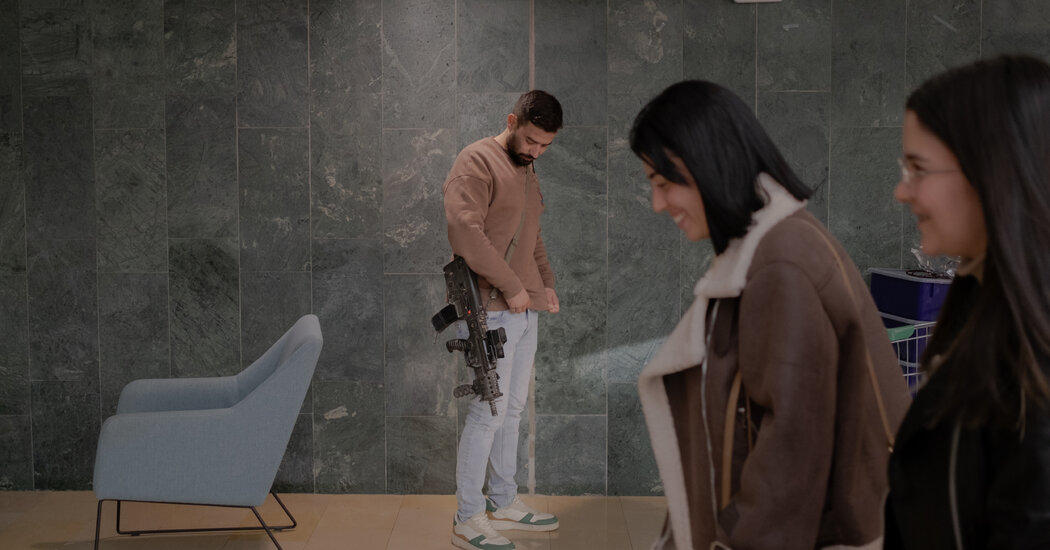At the University of Haifa, a uniquely mixed institution where more than 40 percent of students are Arabs, those anxieties are amplified by what is among the school’s proudest achievements — its diversity.
For the first time since the outbreak of the war, Jewish students, some of whom had spent the past months fighting in Gaza or lost friends and family in the Hamas-led attack on Oct. 7, rubbed shoulders with Arab students. And some of those Arab students had relatives killed in Gaza or had been targeted and silenced on social media because of their views on the war.
While the fighting in Gaza is almost 100 miles away from the university, thoughts of the war are inescapable. About 1,500 military reservists attend the University of Haifa, and as long as they’re called up, the student-soldiers, including Mr. Cohen, are required to keep their weapons on them at all times. As a result, the newly armed students are bringing semiautomatic rifles to class.
“We’re doing everything possible to connect to our students and allay fears that people have,” said Ron Robin, the university’s president. That included focus groups intended to gauge students’ feelings before the start of the semester; Arab and Jewish professors talking with students and each other about the importance of diversity and inclusion; and holding many more meetings via Zoom.
Still, fears persist. More than 50 percent of Jewish and Arab students across the country are afraid of sitting in a classroom with one another, and nearly one in two Arabs have considered not returning to campus at all, according to a November survey by the aChord Center, a nonprofit that focuses on ethnic relations in Israel.


